#971 Aphorisms from an apiarist
Show Me the Honey: Adventures of an Accidental Apiarist
by Dave Doroghy, foreword by Rick Hansen
Victoria: TouchWood Editions, 2020
$25.00 / 9781771513227
Reviewed by Natalie Lang
*
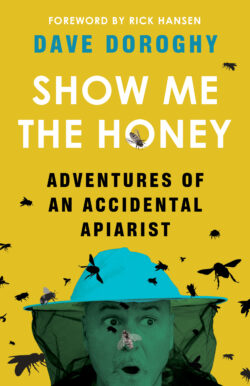 Bees. Those black and yellow winged creatures buzzing about and smelling the roses; perhaps there is more to them than meets the eye. Do they hold the secret to a well developed society, where the sweetness of life and hard collective work coexist? Dave Doroghy, known as “The Honey Guy” by some, has written about his experience as a rookie apiarist (beekeeper) in Show Me the Honey: Adventures of an Accidental Apiarist.
Bees. Those black and yellow winged creatures buzzing about and smelling the roses; perhaps there is more to them than meets the eye. Do they hold the secret to a well developed society, where the sweetness of life and hard collective work coexist? Dave Doroghy, known as “The Honey Guy” by some, has written about his experience as a rookie apiarist (beekeeper) in Show Me the Honey: Adventures of an Accidental Apiarist.
With a foreword by Rick Hansen, whose friendship was forged when Doroghy joined him in the last leg of his “Man in Motion” tour across Canada in 1987, Show Me the Honey is a memoir showcasing, Hansen writes in his foreword, Doroghy’s “natural curiosity and ambitious spirit that allows him to jump into sticky adventures with ease” (p. 3).
To the point, laugh out loud funny, filled with practical apian applications and gems of wisdom suited to this wild world – and ideal for anyone interested in keeping bees or simply curious about the wee fuzzy creatures, their honey, or the strange temperaments of beekeepers themselves — this book is a must read.

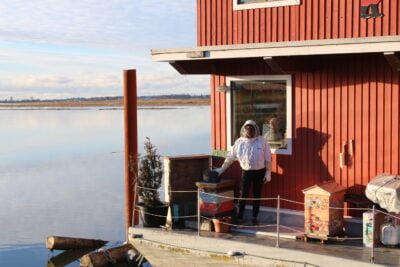
Doroghy lives on a float home in Ladner, and it was here that he acquired his first hive of bees. Initially the hive, on loan from his sister, was a bit of an afterthought and simple curiosity. Rather quickly, however, it became a source simultaneously of absolute joy and tremendous torment. Doroghy faced the pros and cons of beekeeping head-on and came to understand that being an apiarist is a serious business.
At first, Doroghy was a lousy bee host, trying to join a “cliquey club of honeybee nerds” (p. 5), but eventually — after gaining experience, making mistakes, feeling foolish, and cheating in a beekeeping course test – he earned insights that are as close to stoic wisdom as an apiarist life will get you. Indeed, the aphoristic Doroghy has stumbled upon some basic rules for life, for example, “many lessons in life are learned from mistakes” (p. 68); you must “manage your expectations” (p. 103); “when the shit hits the fan, concentrate on the positive and get on with it” (p. 89); and “life stings, no matter how respectful and at peace you are with your hive” (p. 27).
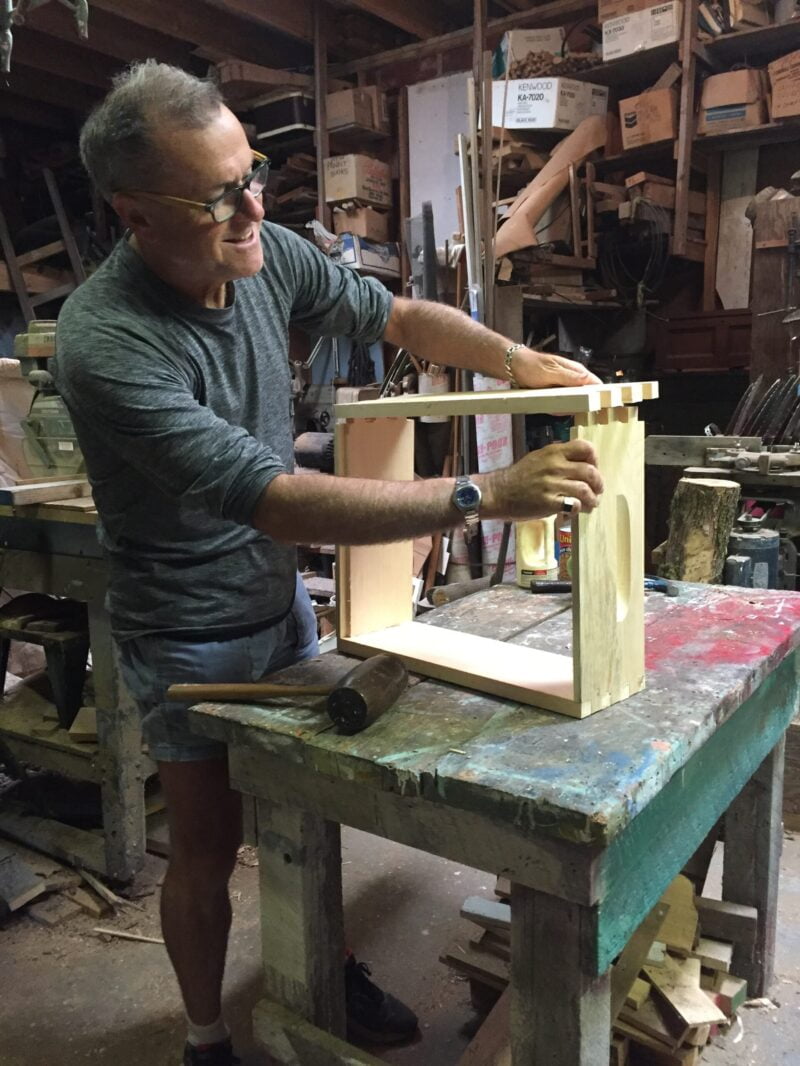
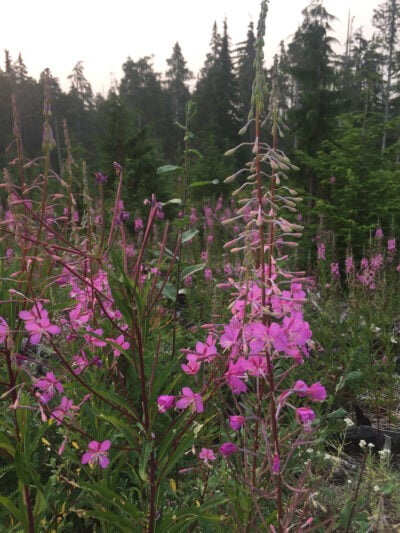
Doroghy points out that people have a tendency to argue “over who [is] right, instead of working together in harmony for the common good” (p. 53). Bees, on the other hand, understand on a coded biological level that community is necessary for survival. Everyone in the hive has a job. Collaboration, among lady bees in particular, is key. They work hard together all spring and summer, and as a result enjoy the sweetness in life: honey. Doroghy, through bumbling and accidental observation as a rookie apiarist, and acquiring a more astute eye as he grew to love his hive and the busy ladies within it, has in Show Me the Honey captured the essence of what makes hives work. The collective community element is integral to their survival and ability to thrive in a world where everything, including humans, is trying to kill them.
While sometimes a tad comically over-dramatic, Doroghy lavishes the reader with well- phrased gems and epigrams bursting with humour and wisdom as he interprets our world world through the lives of bees. He never hesitates to extend an anecdote about his hive to comparable life experiences. For example, he likens his queen bee to Queen Elizabeth II and compares the madness of joining two hives to discredited immigration policies. Yet alongside his lively stories of near-catastrophic allergic reactions to bee stings, his fight to find an impenetrable bee suit, and his struggles in keeping his “girls” alive and thriving, he introduces a more practical and serious element into his book.
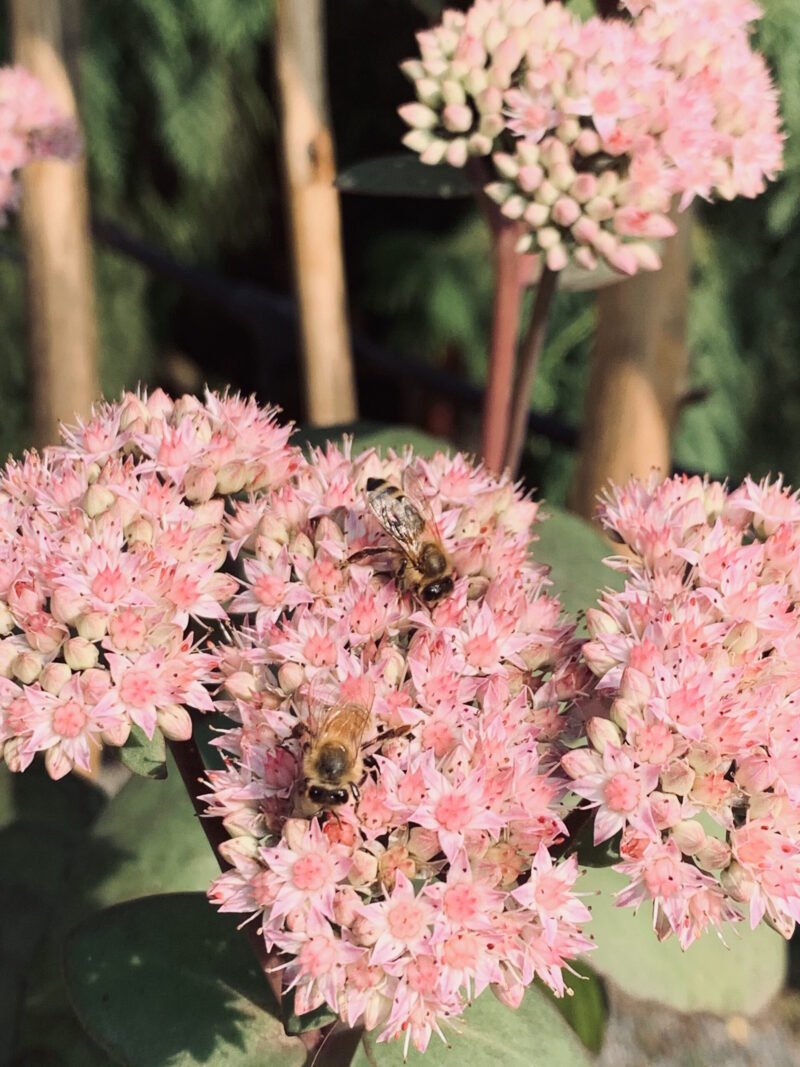
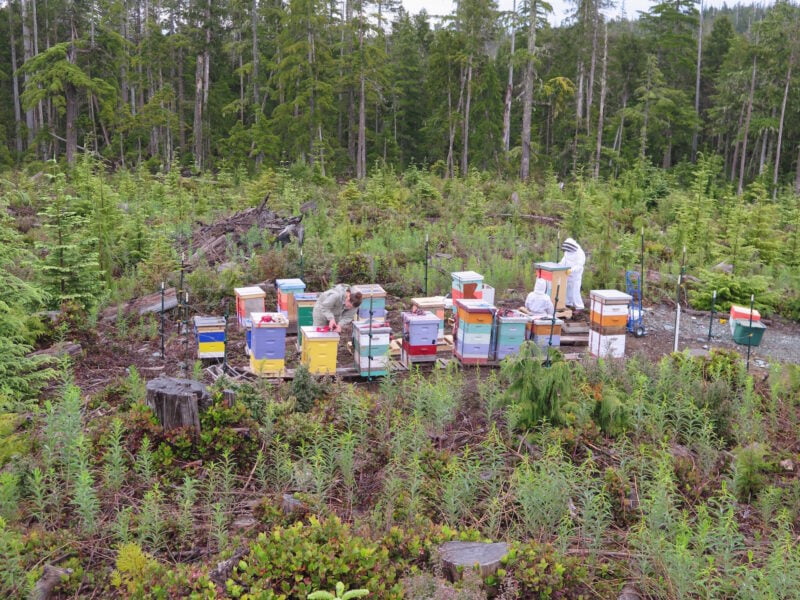
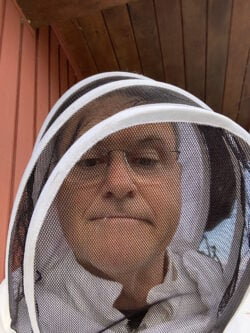
Doroghy offers recipes for sugar substitutes to keep bees alive in the winter when their honey stores are low. He provides basic information on the necessary gear, where to go to ask questions, and the benefits and drawbacks of large apiary conventions. He reveals his personal hang-ups surrounding the practical and emotional difficulties associated with beekeeping. He cautions readers against getting into beekeeping because, while it sounds like fun, any romantic or bucolic expectations of an apiarist’s life will fall far short of reality.
Bees are suffering more today than ever before. They are constantly at war with something, from mites, viruses, wasps, climate change, to pesticides. As such, small time beekeepers like Doroghy are essential agents in keeping bee populations alive and thriving. While Doroghy struggled at times as he rejected the romantic or bucolic aspects of keeping bees, he also conveys that the pursuit grew on him. Show Me the Honey suggests that if you take the necessary time, care, and effort, beekeeping can be intensely rewarding.
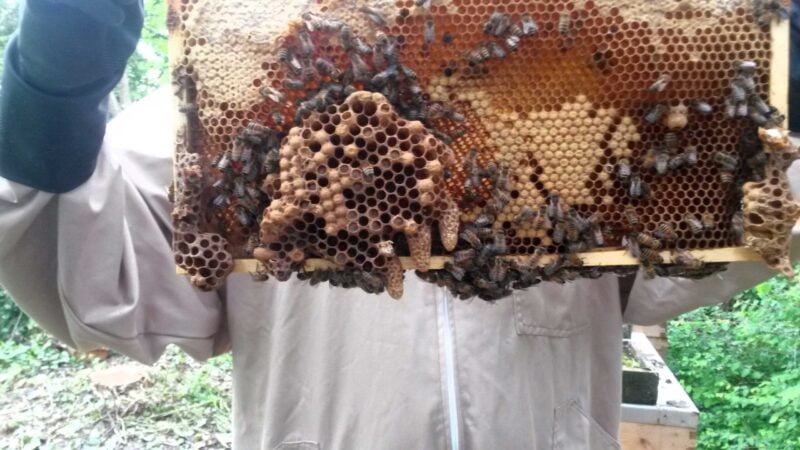
What started for Doroghy as a sideline in beekeeping became a massive learning curve filled with pain, suffering, mistakes, joy, and loss. Once, after loosing his entire hive, Doroghy went through the stages of grief and flitted through various emotional states while deciding whether or not to continue. In the end, he decided he was serious and would do everything he could to keep his girls safe and contribute to the vast array of apian tasks that go into pollinating the earth and creating that sweet sweet nectar, honey, that we know and love.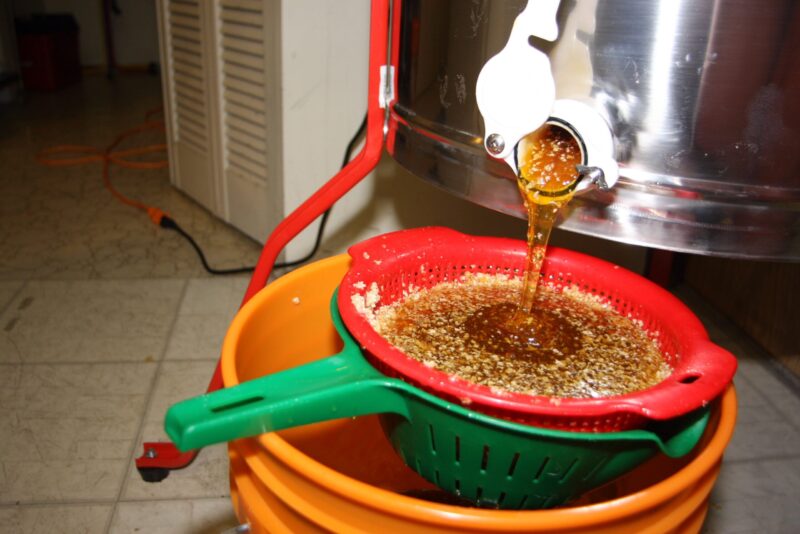
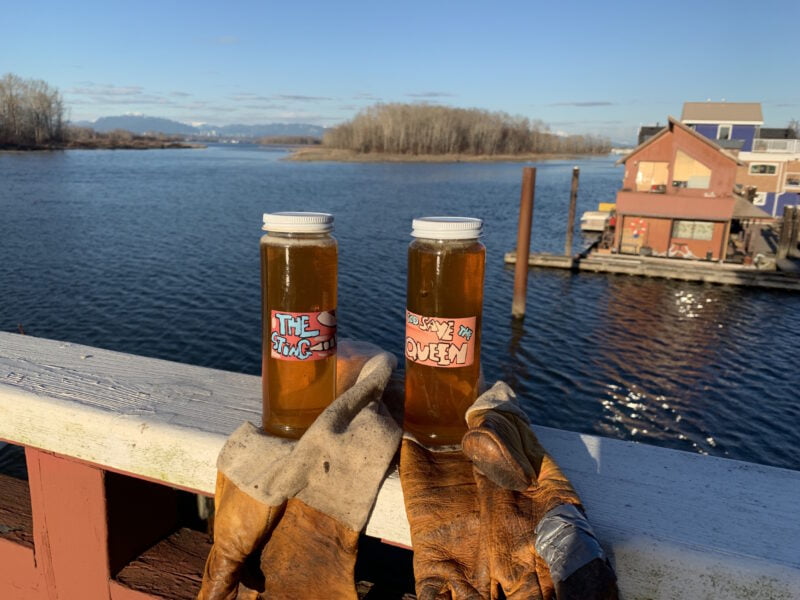
*

Natalie Lang is a teacher and writer. She is also currently a master’s student in the GLS (Graduate of Liberal Studies) program at SFU. She is based in Abbotsford, BC, where she teaches literature at Rick Hansen Secondary, and lives in a renovated barn in the heart of Sumas Mountain. Editor’s note: Natalie Lang has reviewed books by Sheena Kamal, Jae Waller, carla bergman (compiler and editor), Sonnet L’Abbé, Larry Hannant, Tanya dePape, Emily Lycopolus, Alicia Tobin, and Cait Flanders for The Ormsby Review.
*
The Ormsby Review. More Books. More Reviews. More Often.
Publisher and Editor: Richard Mackie
The Ormsby Review is a journal service for in-depth coverage of B.C. books and authors. The Advisory Board consists of Jean Barman, Robin Fisher, Cole Harris, Wade Davis, Hugh Johnston, Patricia Roy, David Stouck, and Graeme Wynn. Scholarly Patron: SFU Graduate Liberal Studies. Honorary Patron: Yosef Wosk. Provincial Government Patron since September 2018: Creative BC
“Only connect.” – E.M. Forster

One comment on “#971 Aphorisms from an apiarist”